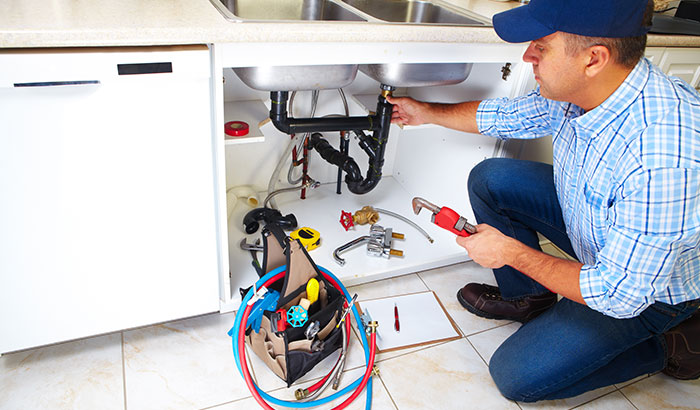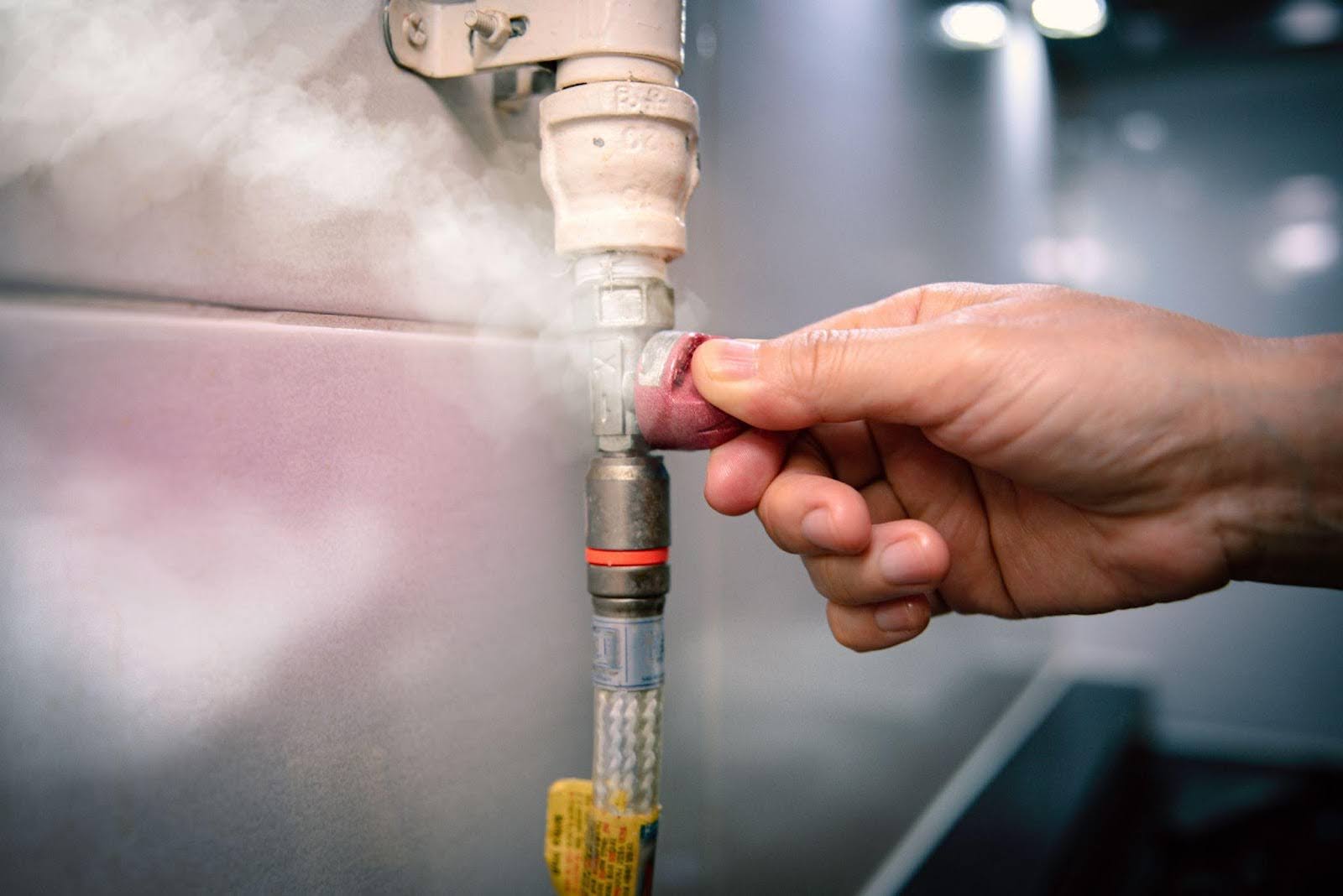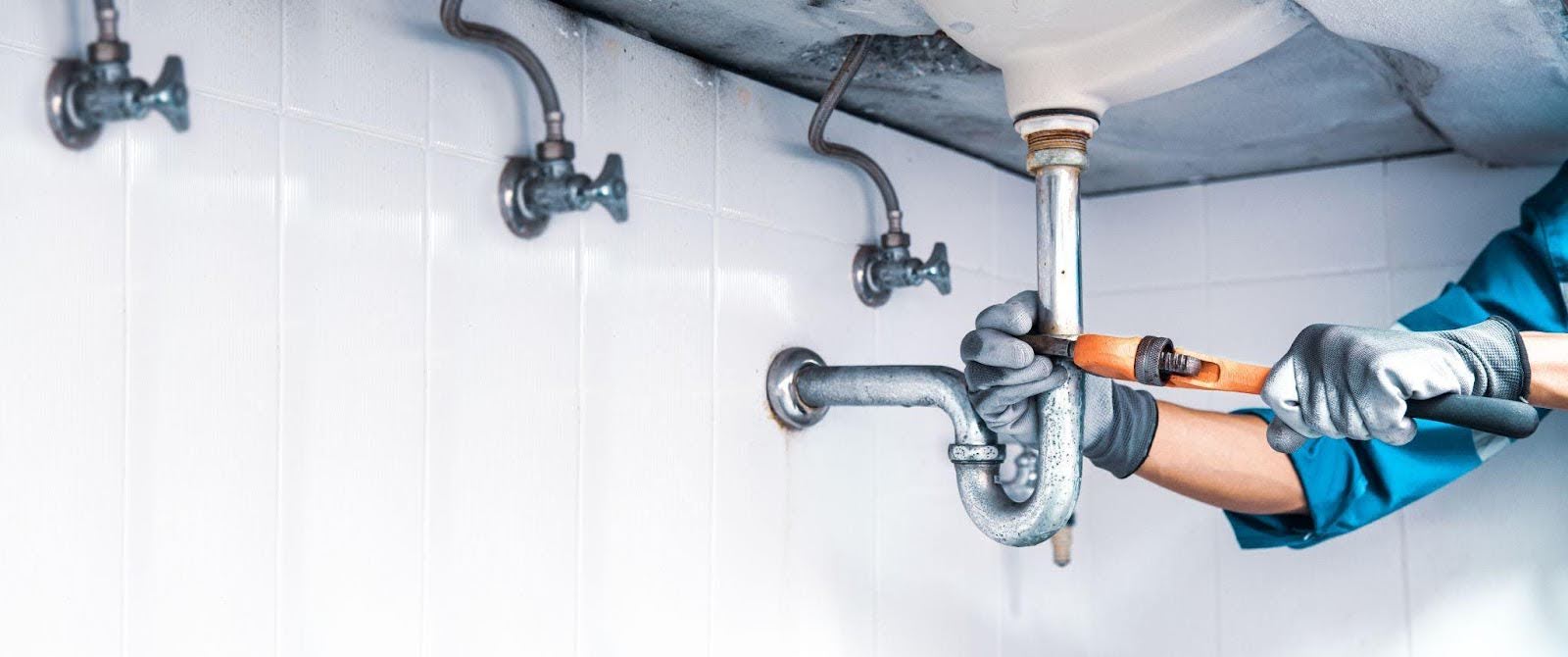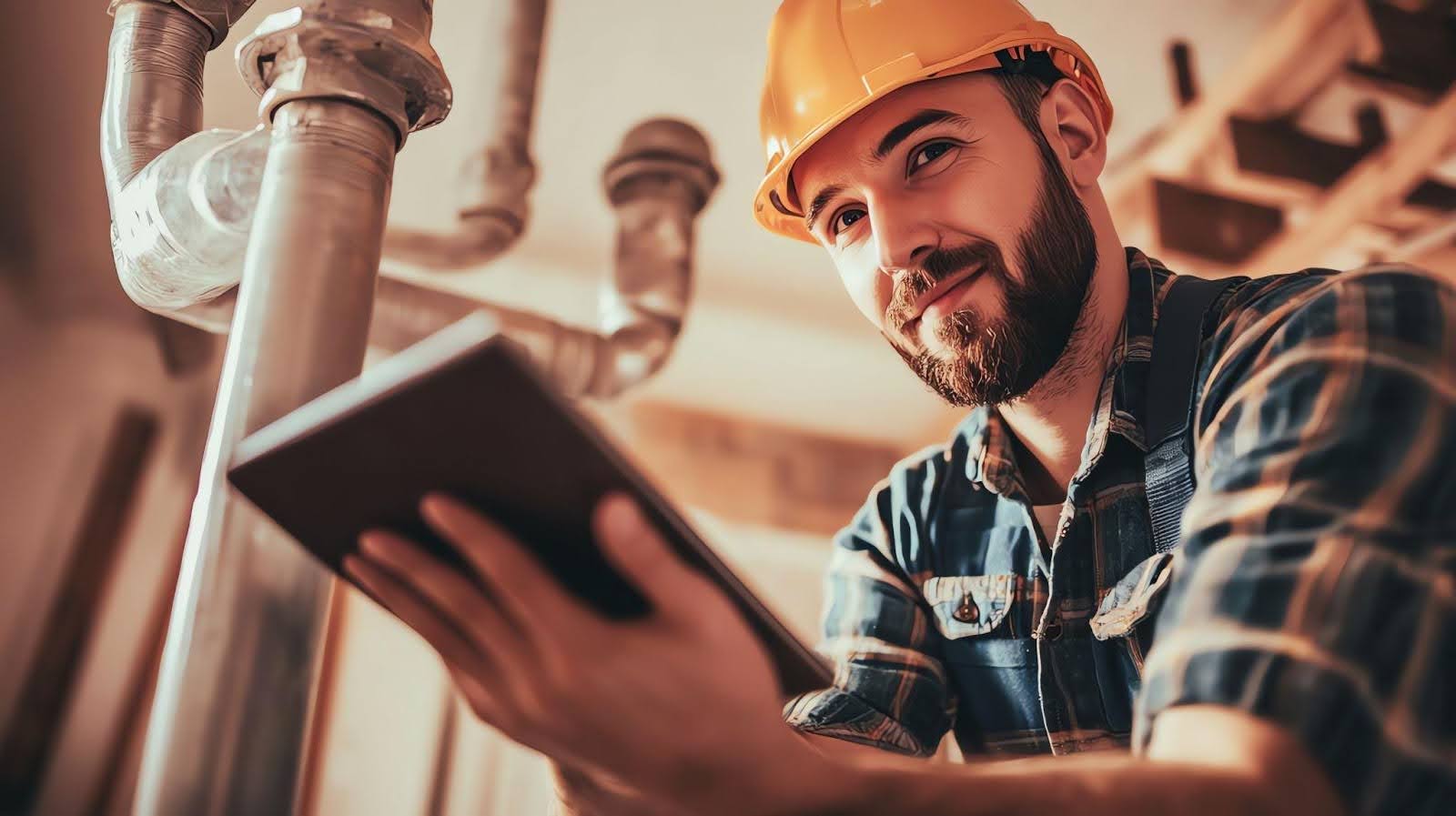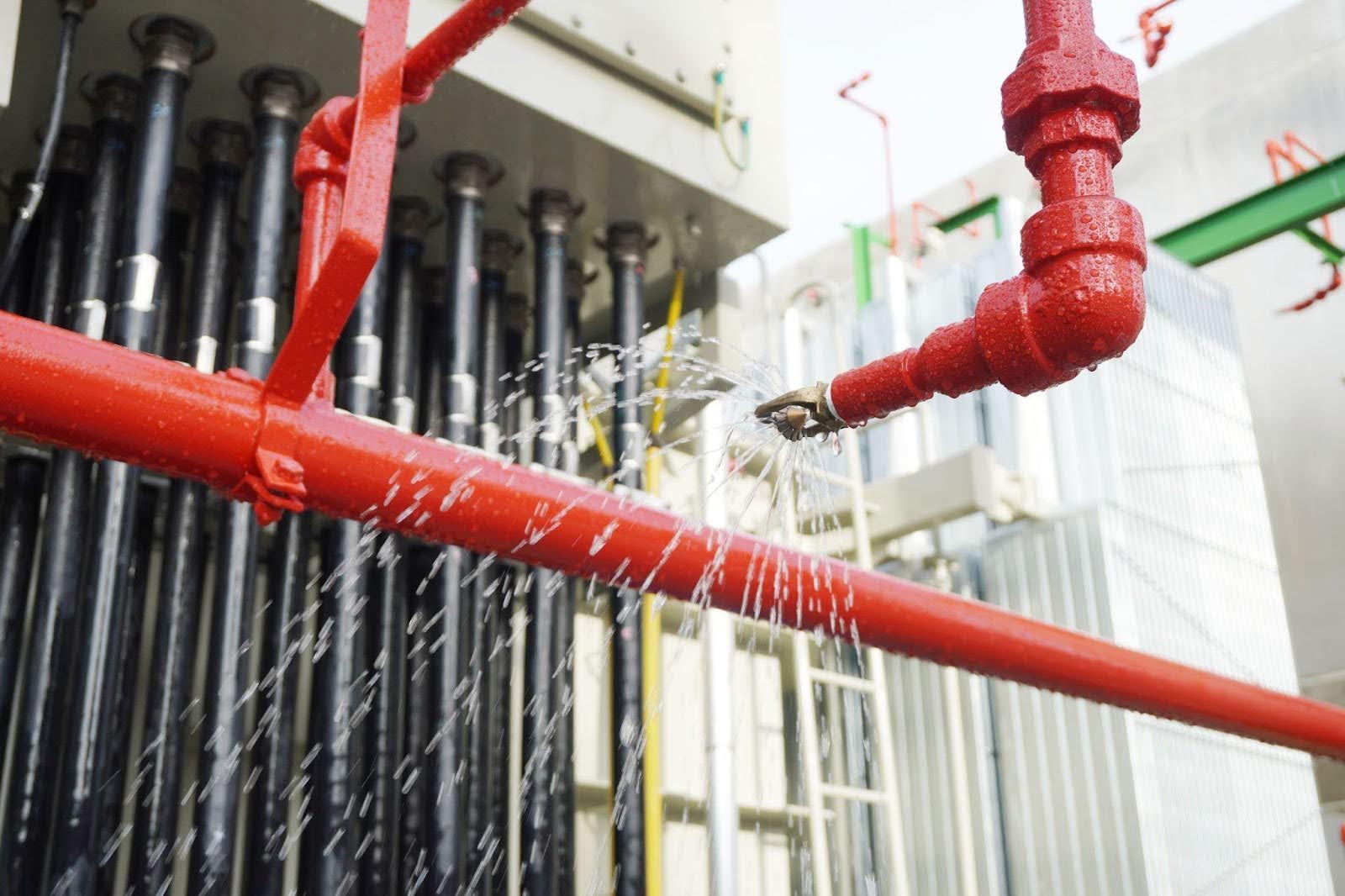If you’re gearing up to start constructing a commercial space, it’s crucial to pay careful attention to the plumbing requirements. Plumbing plays a vital role in ensuring your new venture’s functionality, efficiency, and overall success.
As a visionary entrepreneur or a diligent project manager, you understand that every aspect of your commercial space needs to be meticulously planned and executed. Plumbing may not be the most exciting topic, but it’s one of the foundational elements that can make or break your business operations.
From providing clean water for daily activities to efficient wastewater management, a well-designed commercial plumbing system ensures smooth functionality and a pleasant experience for both employees and customers.
Imagine opening your doors to the public only to discover plumbing issues that disrupt your operations or create an unpleasant environment. Leaky faucets, clogged drains, or inadequate water supply can tarnish your reputation and cost you valuable time and money. By addressing the plumbing needs from the outset, you can prevent such headaches and create a comfortable and efficient commercial space that stands the test of time.
In this blog, we will walk you through the eight essential plumbing needs you should consider when constructing a new commercial space. Whether you’re a seasoned developer or a first-time business owner, we aim to provide you with valuable insights, practical tips, and expert advice to help you make informed decisions and ensure that your plumbing infrastructure aligns with your vision.
1. Water Supply Systems
First and foremost, commercial buildings are typically connected to a public water supply system. This connection ensures a constant and regulated water supply, catering to the demands of the building occupants and activities.
A network of pipes, valves, and fixtures inside the building forms the water distribution system. These components work together to transport water from the source to various areas and points of use within the building. High-quality materials should be used to ensure durability and adherence to water quality standards.
Water treatment and filtration are essential in maintaining water quality within commercial buildings. Depending on the water source, treatment processes such as sediment filtration, disinfection, and pH adjustment may be employed to remove impurities and ensure the water meets health and safety standards.
Proper water pressure is crucial for the efficient functioning of plumbing fixtures and appliances. Commercial buildings utilize pressure regulation mechanisms, such as pressure-reducing valves, to maintain optimal water pressure throughout the building, preventing issues like low flow or excessive pressure.
Compliance with local plumbing codes and regulations is also essential for the water supply system in commercial buildings. These regulations address aspects such as water quality standards, pipe sizing, and fixture requirements, ensuring the safety and well-being of occupants.
2. Drainage and Sewage Systems
These systems play an important role in keeping your space clean, functional, and pleasant for everyone who enters.
A well-designed drainage system ensures that water flows smoothly down sinks, showers, and toilets, without causing any clogs or unpleasant odors. Choosing the right materials and sizes for your drain pipes can minimize the chances of experiencing frustrating backups or overflows. Additionally, installing traps beneath sinks and drains helps prevent unpleasant smells from wafting through your commercial space.
Proper venting is also essential for a well-functioning drainage system. Vents help release sewer gases and maintain optimal air pressure within the pipes. You can avoid hearing gurgling noises or experiencing slow drainage with adequate venting. It’s a small detail that can make a big difference in the overall functionality of your plumbing.
Connecting your drainage system to the main municipal sewer line or a septic tank ensures that wastewater is disposed of correctly and complies with local plumbing regulations. It’s important to consult with experienced plumbers or local authorities to ensure you’re meeting all the necessary codes and requirements. By doing so, you contribute to a healthier environment and avoid potential issues down the line.
3. Restroom Facilities
In commercial spaces, well-designed and adequately equipped restrooms are of utmost importance. Whether you’re running a bustling office, a trendy restaurant, or a retail store, providing clean and functional restroom facilities is essential for the comfort and satisfaction of your employees and customers.
First and foremost, ensure that you comply with accessibility and code requirements when designing your restrooms. Accessibility is a key consideration, as you need to provide accommodations for individuals with disabilities. Install grab bars, accessible sinks, and wide entryways to ensure equal access for everyone.
Toilets are a fundamental component of any restroom. Choose fixtures that are durable, water-efficient, and easy to maintain. Consider opting for low-flow or dual-flush toilets to promote water conservation and reduce utility costs. Additionally, install reliable and hygienic automatic flush systems to enhance cleanliness and convenience.
Adequate ventilation is crucial in restrooms to control odors and maintain air quality. Install ventilation systems that ensure proper air circulation and prevent moisture buildup, which can lead to mold and mildew issues. Properly placed exhaust fans or windows can help achieve this goal.
4. Kitchen and Breakroom Plumbing
In commercial spaces that include kitchens and breakrooms, having well-planned and efficient plumbing is essential to support daily operations and provide a comfortable space for employees. Whether it’s a restaurant, office pantry, or shared break area, paying attention to the plumbing needs of these spaces is important.
Sinks are the centerpiece of any kitchen or breakroom. They are used for food preparation, dishwashing, and general cleaning. Install durable sinks that can withstand heavy use and are easy to clean. Consider the number of sinks needed based on the size of your commercial space and the expected volume of usage.
In kitchens, dishwashers play a vital role in maintaining cleanliness and efficiency. Ensure proper dishwasher plumbing connections, including hot water supply, drain lines, and backflow prevention. Follow manufacturer guidelines for installation and maintenance to optimize performance and prolong the appliance’s lifespan.
If you need kitchen plumbing, grease traps will be critical, especially in food establishments. They capture fats, oils, and grease to prevent them from clogging the plumbing system. Installing and regularly maintaining grease traps is essential to comply with regulations, prevent blockages, and avoid costly plumbing repairs.
5. Fire Sprinkler System
When building a new commercial space, ensuring occupants’ safety is paramount. One critical aspect of fire safety is installing a reliable fire sprinkler system. These systems are designed to detect and suppress fires, providing crucial protection for your property and its people.
Fire sprinkler systems consist of a network of pipes and sprinkler heads strategically placed throughout the building. In the event of a fire, the flame’s heat activates individual sprinkler heads, releasing water to control or extinguish the fire. They are a highly effective first line of defense, providing early intervention and helping to minimize fire damage.
When planning the installation of a fire sprinkler system, it’s essential to work with an experienced plumbing company that can design a system that meets local plumbing and fire codes and regulations. These codes specify the necessary coverage, pipe sizing, and water supply requirements to ensure the system’s effectiveness.
The positioning of sprinkler heads is crucial for optimal coverage. The system’s design should consider factors such as the type of occupancy, ceiling height, and potential fire hazards in specific areas. By carefully considering these factors, the sprinkler system can provide comprehensive coverage, effectively controlling fires and protecting lives and property.
Regular inspection, maintenance, and fire sprinkler system testing are also vital to ensure its proper functioning. This includes checking for any signs of damage, leaks, or obstructions that may affect the system’s performance.
6. Water Heating System
When building a new commercial space, it’s important to consider the water heating needs and select the right system for your requirements.
Several options are available for water heating systems, including tankless water heaters and storage tank systems. Each type has advantages and considerations, so it’s crucial to evaluate your specific needs and consult a professional plumbing company to determine the most suitable option for your commercial space.
Tankless water heaters, also known as on-demand water heaters, provide hot water instantaneously, eliminating the need for a storage tank. They are known for their energy efficiency and compact size, making them ideal for spaces with limited room. Tankless systems heat water as it passes through the unit, providing a continuous hot water supply on demand.
Storage tank water heaters are the traditional option, featuring a large tank that stores and heats water for future use. These systems come in various sizes to accommodate different water heating demands. While they may have a larger footprint, they offer a hot water reservoir, ensuring a constant supply during peak usage.
7. Backflow Prevention
Backflow prevention is a critical aspect of plumbing systems in commercial spaces, safeguarding the quality of the water supply and preventing contamination. Backflow occurs when water flow reverses direction, allowing potentially contaminated water to enter the clean water supply. Implementing effective backflow prevention measures is essential to protect the health and safety of occupants.
To prevent backflow, backflow prevention devices are installed at key points in the plumbing system. These devices are designed to ensure that water flows in one direction only, preventing the reversal of water flow and the potential contamination of the potable water supply.
8. Regular Maintenance and Inspection
When it comes to the regular maintenance and inspection of the plumbing systems in your commercial space, it is highly recommended to enlist the services of a professional plumbing company. While your maintenance staff can perform basic maintenance tasks, a qualified plumber brings specialized expertise and experience that ensures thorough and effective maintenance.
Trust Salisbury Plumbing for Expert Commercial Plumbing Installation
Are you building a new commercial building or remodeling one? Contact Salisbury Plumbing today and experience top-quality service and expertise for all your plumbing needs. Our team of professional plumbers is dedicated to delivering reliable and efficient solutions for commercial spaces.
Whether you’re building a new commercial space or looking to upgrade your existing plumbing system, Salisbury Plumbing has the expertise and experience to handle it all. Our skilled plumbers are equipped with the latest tools and techniques to ensure precise installations, thorough inspections, and effective maintenance.
Don’t settle for anything less than exceptional when it comes to your commercial plumbing. Trust Salisbury Plumbing for reliable services that meet the highest industry standards. We prioritize customer satisfaction and take pride in our attention to detail, professionalism, and prompt response times.
Contact us today using our online form or at 385-442-5952 to discuss your commercial plumbing project or schedule an inspection. Our friendly and knowledgeable team is ready to assist you every step of the way. Experience the Salisbury Plumbing difference and ensure your commercial plumbing is in the hands of trusted professionals.
toto slot

